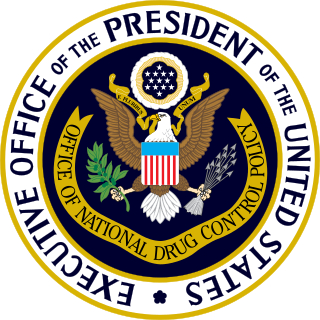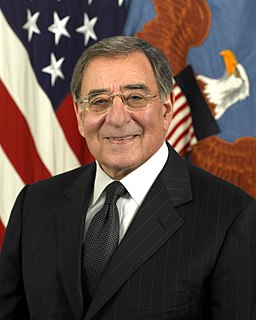
The Controlled Substances Act (CSA) is the statute establishing federal U.S. drug policy under which the manufacture, importation, possession, use, and distribution of certain substances is regulated. It was passed by the 91st United States Congress as Title II of the Comprehensive Drug Abuse Prevention and Control Act of 1970 and signed into law by President Richard Nixon. The Act also served as the national implementing legislation for the Single Convention on Narcotic Drugs.

The Office of the United Nations High Commissioner for Human Rights is a department of the Secretariat of the United Nations that works to promote and protect the human rights that are guaranteed under international law and stipulated in the Universal Declaration of Human Rights of 1948. The office was established by the UN General Assembly on 20 December 1993 in the wake of the 1993 World Conference on Human Rights.

The United States Department of State (DOS), commonly referred to as the State Department, is the federal executive department that advises the President and conducts international relations. Equivalent to the foreign ministry of other countries, it was established in 1789 as the nation's first executive department.

The Government Accountability Office (GAO) is a legislative branch government agency that provides auditing, evaluation, and investigative services for the United States Congress. It is the supreme audit institution of the federal government of the United States.

The Office of National Drug Control Policy is a component of the Executive Office of the President of the United States.

Leon Edward Panetta is an American politician who has served in several different public office positions, including the Secretary of Defense, Director of the CIA, White House Chief of Staff, Director of the Office of Management and Budget, and as a U.S. Representative from California. A Democrat, Panetta was a member of the United States House of Representatives from 1977 to 1993, served as Director of the Office of Management and Budget from 1993 to 1994, and as President Bill Clinton's Chief of Staff from 1994 to 1997. He co-founded the Panetta Institute for Public Policy and served as a Distinguished Scholar to Chancellor Charles B. Reed of the California State University System and as a professor of public policy at Santa Clara University.
The U.S. Commission on National Security/21st Century (USCNS/21), also known as the Hart-Rudman Commission or Hart-Rudman Task Force on Homeland Security, was chartered by Secretary of Defense William Cohen in 1998 to provide a comprehensive review of US national security requirements in the 21st century. USCNS/21 was tasked "to analyze the emerging international security environment; to develop a US national security strategy appropriate to that environment; and to assess the various security institutions for their current relevance to the effective and efficient implementation of that strategy, and to recommend adjustments as necessary".
The Report of the National Commission on Terrorism, also known as the Bremer Commission, "Countering The Changing Threat of International Terrorism", Pursuant to Public Law 277, 105th Congress, was published June 2000. Ambassador Paul Bremer served as Chairman, and Maurice Sonnenberg served as Vice Chairman.

The war on drugs is a campaign, led by the U.S. federal government, of drug prohibition, military aid, and military intervention, with the stated aim being to reduce the illegal drug trade in the United States. The initiative includes a set of drug policies that are intended to discourage the production, distribution, and consumption of psychoactive drugs that the participating governments and the UN have made illegal. The term was popularized by the media shortly after a press conference given on June 18, 1971, by President Richard Nixon—the day after publication of a special message from President Nixon to the Congress on Drug Abuse Prevention and Control—during which he declared drug abuse "public enemy number one". That message to the Congress included text about devoting more federal resources to the "prevention of new addicts, and the rehabilitation of those who are addicted", but that part did not receive the same public attention as the term "war on drugs". However, two years prior to this, Nixon had formally declared a "war on drugs" that would be directed toward eradication, interdiction, and incarceration. Today, the Drug Policy Alliance, which advocates for an end to the War on Drugs, estimates that the United States spends $51 billion annually on these initiatives.

The Fair and Accurate Credit Transactions Act of 2003 is a United States federal law, passed by the United States Congress on November 22, 2003, and signed by President George W. Bush on December 4, 2003, as an amendment to the Fair Credit Reporting Act. The act allows consumers to request and obtain a free credit report once every twelve months from each of the three nationwide consumer credit reporting companies. In cooperation with the Federal Trade Commission, the three major credit reporting agencies set up the web site AnnualCreditReport.com to provide free access to annual credit reports.
Congressional oversight is oversight by the United States Congress over the Executive Branch, including the numerous U.S. federal agencies. Congressional oversight includes the review, monitoring, and supervision of federal agencies, programs, activities, and policy implementation. Congress exercises this power largely through its congressional committee system. Oversight also occurs in a wide variety of congressional activities and contexts. These include authorization, appropriations, investigative, and legislative hearings by standing committees; specialized investigations by select committees; and reviews and studies by congressional support agencies and staff.
The National Academy of Engineering (NAE) is an American nonprofit, non-governmental organization. The National Academy of Engineering is part of the National Academies of Sciences, Engineering, and Medicine, along with the National Academy of Sciences (NAS), the National Academy of Medicine, and the National Research Council.

The National Capital Planning Commission (NCPC) is a U.S. government agency that provides planning guidance for Washington, D.C., and the surrounding National Capital Region. Through its planning policies and review of development proposals, the Commission seeks to protect and enhance the extraordinary resources of the national capital.

The National Institute of Biomedical Imaging and Bioengineering (NIBIB), founded at the National Institutes of Health (NIH) in 2000, is located in Bethesda, Maryland. It is one of 27 institutes and centers that are part of NIH, an agency of the U.S. Department of Health and Human Services (HHS).
The Century Foundation is a progressive think tank headquartered in New York City with an office in Washington, D.C. It was founded as a nonprofit public policy research institution on the belief that the prosperity and security of the United States depends on a mix of effective government, open democracy, and free markets. Its staff, fellows, and authors produce books, reports, papers, pamphlets, and online publications. The Foundation also hosts policy-related events and workshops for various audiences, including policy experts, journalists, college students and other academics, and the general public. It also manages several ongoing policy projects and operates a number of websites on various policy-related topics.

The Council of Ministers of the Federal Government of Somalia consists of Ministers appointed by the Prime Minister. The Prime Minister may dismiss members of the Council, and new appointees must again be approved by the Parliament. The Council meets weekly on Thursdays in Mogadishu. There may be additional meetings if circumstances require it. The Prime Minister chairs the meetings.

The National Integrated Drought Information System (NIDIS) Act was signed into law in 2006. The Western Governors' Association described the need for NIDIS in a 2004 report, Creating a Drought Early Warning System for the 21st Century: The National Integrated Drought Information System. The NIDIS Act calls for an interagency, multi-partner approach to drought monitoring, forecasting, and early warning, led by the National Oceanic and Atmospheric Administration (NOAA).
The space policy of the United States includes both the making of space policy through the legislative process, and the implementation of that policy in the civilian and military US space programs through regulatory agencies. The early history of United States space policy is linked to the US–Soviet Space Race of the 1960s, which gave way to the Space Shuttle program. There is a current debate on the post-Space Shuttle future of the civilian space program.

The National Integrated Drought Information System Reauthorization Act of 2013 is a bill that would reauthorize the National Integrated Drought Information System, a program that examines the impact of droughts and tries to respond to them on a federal level. The bill would extend the program until 2018.

The United States Advisory Commission on Public Diplomacy, created in 1948, is tasked by Congress with "appraising U.S. Government activities intended to understand, inform and influence foreign publics and to increase the understanding of, and support for, these same activities." The commission is supported by the Office of the Under Secretary of State for Public Diplomacy and Public Affairs, and reports to the President, Secretary of State, and Congress. Its current charter authorizes the Commission through 2020.














